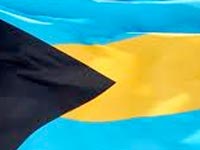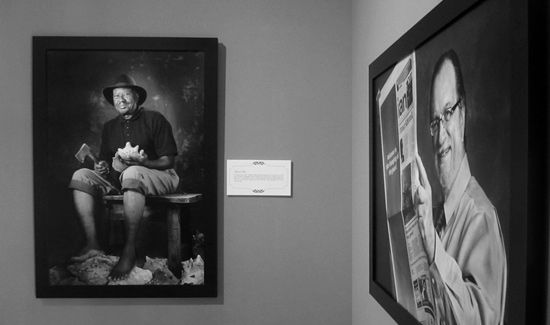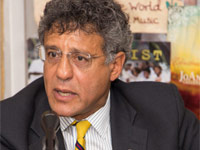 Last Tuesday, the kick-off event of the 40th independence anniversary was announced at the Cabinet Office. It was a bumbling and incoherent affair provoking many questions while providing few considered answers.
Last Tuesday, the kick-off event of the 40th independence anniversary was announced at the Cabinet Office. It was a bumbling and incoherent affair provoking many questions while providing few considered answers.
Two days later, Prime Minister David Cameron announced plans for the centenary commemoration of World War I by the United Kingdom. What a study in contrast between the envisioning and planning of the two commemorations by the respective heads of government and policymakers.
In a carefully-crafted address at the Imperial War Museum, the transcript of which is available at 10 Downing Street’s website, Cameron articulated the vision and values intended to guide the commemoration.
Characteristically, Prime Minister Perry Christie has failed to do likewise on at least two occasions. He failed to do so at the announcement of the committee spearheading our 40th. He failed again at last week’s announcement of the renaming of the newer Paradise Island bridge in honor of Sir Sidney Poitier, and related activities.
Whereas Cameron outlined: a planning process, the guiding principles, and the sum of public funds to be dedicated to the centenary, Christie has, as usual, offered cliches and vague generalities. What he lacks in substance he makes up for in babble.
Just as he refused to say how much his administration is paying UK consultants advising on a national lottery, the finance minister is playing a game of hide-and-seek on the funds to be allocated to the 40th anniversary.
“Priceless”
As to how much the government plans to spend on the 40th, the prime minister said that such celebrations are “priceless”. Translation: Christie has little idea of what he’s talking about and little by way of direction or vision for the 40th. In the UK, Cameron provided the costs of the “priceless” commemoration of World War I.
Added to the blather over costs, Christie offered this bluster in speaking of the anniversary celebrations: “Hopefully this would symbolize to The Bahamas at large that we are now beginning a process that is intended to unite us, intended to bring focus to what really keeps us together and to minimize what divides us.”
Christie has succeeded in unifying the country. Unfortunately, this unity, across party and other lines, is heated and fierce opposition to the renaming of the bridge and the naming of a performing arts center in honor of Sir Sidney Poitier.
Whereas the government thought it may have hit a home run, it has struck out badly. Because of this blunder it risks embarrassing Sir Sidney. Moreover, the 40th anniversary has started on a sour and jarring note.
There is also this oddity. A Bahamas Information Service story noted: “The prime minister said he was happy that the Independence Committee chose to honor Sir Sidney – although there have been a lot of debate on that.”
His artful dodger comment does not square with a statement made by a co-chair of the committee: “the renaming of the bridge and the concert in Sir Sidney’s honor are Atlantis’ initiatives, not the government’s.” As a reminder, both bridges between Nassau and Paradise Island are government-owned.
The wrong-headed decision and poor judgement to rename the bridge and a national performing arts center in honor of Sir Sidney highlights the lack of a compelling vision or articulated values and goals guiding the celebration of our 40th independence anniversary.
Outsourced
The lack of clarity of vision and values begins with the prime minister and his Cabinet, who, it appears, in the renaming of the bridge, has outsourced the honoring of our national heroes to a private company.
In renaming the bridge after Sir Sidney we have launched our 40th with a publicity stunt inclusive of a “star-studded” concert featuring foreign talent, in a direct slap at Bahamian artists. So much for Bahamians first!
How sad, that at the beginning of this significant anniversary, we have chosen to revel in American celebrity culture rather than primarily showcase Bahamian folklore and talent. This could not be more antithetical to spirit of our 40th.
Some people are happy to remain as minstrels and mimics, leasing out national milestones as a backdrop and stage-set for American celebrities rather than creating a center-stage for Bahamian artistry and native genius.
Bahamians are proud of Sir Sidney. We have honored him with a knighthood and the opportunity to serve as a non-resident ambassador and diplomat. It appears that the Ingraham administration was considering naming one of the main roundabouts of the Airport Gateway Highway in his honor.
The question for most Bahamians in not whether to honor and acknowledge his accomplishments, the question is one of measured judgement in how he is honored.
In Roman Catholicism there is the notion of sensus fidelium or the “sense of the faithful” which means from the ground up or the belief of the mass of the faithful.
While this sense of the faithful applies to doctrine, it may also be employed in speaking of the sense of the mass of faithful Catholics that Pope John Paul II and Mother Theresa be fast-tracked through the process of naming them as saints of the Catholic Church.
It appears that the sense of the mass of Bahamians is that Sir Sidney’s direct contributions to the country have not earned him the honorus the Christie government now seeks to bestow on him. Now in his eighties, Bahamians see very little tangible evidence of his contributions to his homeland, unless he has done so anonymously.
Where are his contributions to the development of the arts or in programs at The College of The Bahamas and elsewhere? Given his profile and contacts, why hasn’t he created an endowed arts program in the country or at COB?
The notion that he should be honored in the manner the government has announced, because he is the most well-known Bahamian, is a case of limited and insufficient reasoning.
V. S. Naipaul is the most well-known son of Trinidad and Tobago. Yet, scores of his countrymen would be loathe to name anything after the irascible Naipaul. This is not to suggest equivalence in terms of the personalities of Naipaul and Poitier.
But celebrity and international repute are neither the only nor the primary criteria in how a country should bestow its honorus. By this rationale, the second bridge should be named after Al Roker, Lenny Kravitz or some other American celebrity.
Timothy Gibson
Instead of Poitier, the bridge could have been named the Timothy Gibson Memorial Bridge, in honor of the author of our national anthem and many other works of music.
Bahamians travelling over the bridge might gain a new appreciation for Gibson. Tourist travelling over the renamed bridge will recognize Poitier’s name. But more delightful would be them asking about Timothy Gibson and then being told about the man from Savannah Sound whose anthem will inspire Bahamians forevermore.
We could have had a concert launching the renaming in honor of Gibson, featuring Joann Callender, the National Youth Choir, Cleveland Williams, Melvin Claridge, Franz Hepburn and others performing a repertoire of his work and the work of other Bahamians.
The naming of a performing arts center after Sir Sidney will be less an honor to him than a dishonor and backhanded slap at the likes of Clement Bethel, Kayla Lockhart Edwards, Winston Saunders, Paul Meeres and others who are more deserving of such a national honor.
These and others are the national heroes who poured blood, sweat and tears into the cultural development of The Bahamas, day in and day out, decade after decades. Sir Sidney’s celebrity is worthy of recognition.
But to the mind of most Bahamians, the national heroes are those, though not necessarily having achieved international celebrity, who have earned a place in the hearts of Bahamians because of what they gave to their homeland with unstinting generosity and exemplary patriotism.
Simon
Author of the Front Porch column in The Nassau Guardian
& contributor on bahamapundit.com



